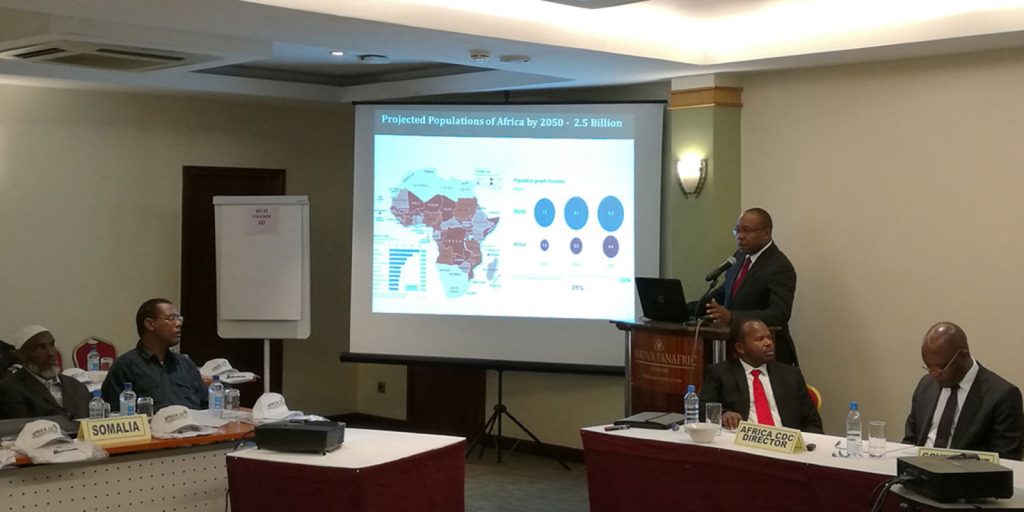African and international public health experts from governments, universities, and non-governmental organisations met from 27th to 29th March to coordinate prevention and response to disease threats in Africa through surveillance and laboratory networks. The recently launched Africa Centres for Disease Control and Prevention (Africa CDC) is committed to strengthening Africa’s disease intelligence, outbreak response, and prevention capacity through surveillance and laboratory networks. At the meeting, Africa CDC and partners established the Regional Integrated Surveillance and Laboratory Networks (Africa CDC RISLNET). These surveillance and laboratory networks will be established by Africa CDC’s five Regional Collaborating Centers (RCCs) in Egypt, Nigeria, Gabon, Zambia, and Kenya in collaboration with all available public health assets in their region, including universities, national public health institutes, private laboratories, centres of excellence, non-governmental organizations, and veterinary networks.
“This is the new spirit of practicing public health in Africa. We will be partnering effectively, collaborating closely, and using efficiently all public health assets in each region of Africa to improve detection and response,” said Dr. John Nkengasong, the Director of the Africa Centres of Disease Control and Prevention.
Africa CDC RISLNET will serve as the platform to implement Africa CDC’s 5 year strategic plan, which was endorsed by its Governing Board last week. Between 2017 and 2018, Africa CDC will support countries and regions to map existing surveillance and laboratory networks, including private laboratories.
Africa CDC is also committed to combating resistance to antibiotics, which are estimated to cause about 4 million deaths per year in Africa by 2050. To begin to address this severe threat, Africa CDC also launched the Antimicrobial Resistance Surveillance Network (Africa CDC AMRSNET). This new network will work closely with the World Health Organisation’s (WHO) Global Antimicrobial Resistance Surveillance Systems to strengthen capacity on the continent for surveillance, including through regional task-based and structured mentorship programmes. Africa CDC will use proven models of medical education to build a community of practice to fight antimicrobial resistance, providing better care to more people where they live.







